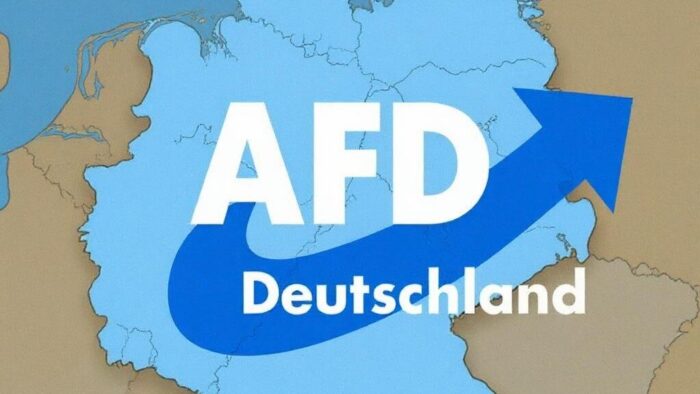Efforts are gaining momentum to ban the Alternative for Germany (AfD), despite the far-right party achieving unprecedented electoral success and becoming the country’s largest opposition group. On 6 July 2025, CNN reported that the Social Democratic Party voted unanimously to begin proceedings against the AfD, despite the party polling at 24% support and enjoying backing from the Trump administration. The article begins:
The far-right Alternative for Germany (AfD) is now Germany’s largest opposition group and even topped several opinion polls – briefly putting it ahead of now-Chancellor Friedrich Merz’s center-right party – in the weeks after February’s federal election. At the same time, the AfD is facing growing calls for an outright ban, most recently from another major political party. In May, the country’s domestic intelligence agency formally classified the AfD as an extremist entity that threatens democracy. In a 1,100-page report, the Federal Office for the Protection of the Constitution, or BfV, also laid out its findings that the party was racist, anti-Muslim, and devaluing of “entire segments” of Germany’s population. That move, which enables the BfV to better monitor the group, has reignited attempts to impose a ban, despite the party claiming a significant 20.8% of the vote in February’s national election – the best performance by a far-right party in the country since World War II.
Key Points
- Germany’s domestic intelligence agency classified the AfD as an extremist entity in a 1,100-page report documenting racist and anti-Muslim positions,
- The AfD won 20.8% in February’s election and briefly polled as Germany’s most popular party at 26% before settling at the current 24% support,
- Elon Musk urged Germans to vote AfD, while Trump administration officials criticized Germany’s extremist classification of the party,
- If banned, the AfD’s 152 Bundestag seats would be dissolved, with 42 direct seats requiring new elections and 110 list seats remaining vacant,
Germany’s AfD & the Global National Conservative Alliance
The Alternative für Germany (AfD), Germany’s national conservative party, has become a focal point of both domestic and transnational political controversy, as its extremist designation by German intelligence agencies raises fundamental questions about the limits of democratic opposition and the role of state surveillance in a liberal democracy. Recently, the AfD has achieved notable success in Western industrial cities like Duisburg by tailoring its anti-immigrant message to address local economic concerns.
The party’s rapid growth and radicalization, marked by a surge in extremist membership and increasingly xenophobic rhetoric, have not only triggered constitutional and diplomatic crises but also positioned the AfD as a linchpin within the Global National Conservative Alliance (GNCA), which seeks to unite right-wing and far-right movements across Europe and beyond.This alliance is characterized by shared ideological commitments to national sovereignty, anti-globalism, and cultural conservatism, as well as operational linkages through participation in international far-right events and collaboration with figures such as Hungary’s Viktor Orbán and France’s Marine Le Pen.
The AfD’s influence is further amplified by external actors, particularly Russia, which has actively cultivated ties with AfD politicians to propagate anti-EU and anti-immigrant narratives, leveraging disinformation campaigns and financial incentives to destabilize European political systems. Despite the contradictions between the AfD’s professed values and the realities of authoritarian governance abroad, its integration into the GNCA underscores the party’s transformation from a national protest movement into a key node in a transnational network that challenges liberal democratic norms and institutions.
External References:
Disclaimer
The Global Influence Operations Report (GIOR) employs AI throughout the posting process, including generating summaries of news items, the introduction, key points, and often the “context” section. We recommend verifying all information before use. Additionally, images are AI-generated and intended solely for illustrative purposes. While they represent the events or individuals discussed, they should not be interpreted as real-world photography.











